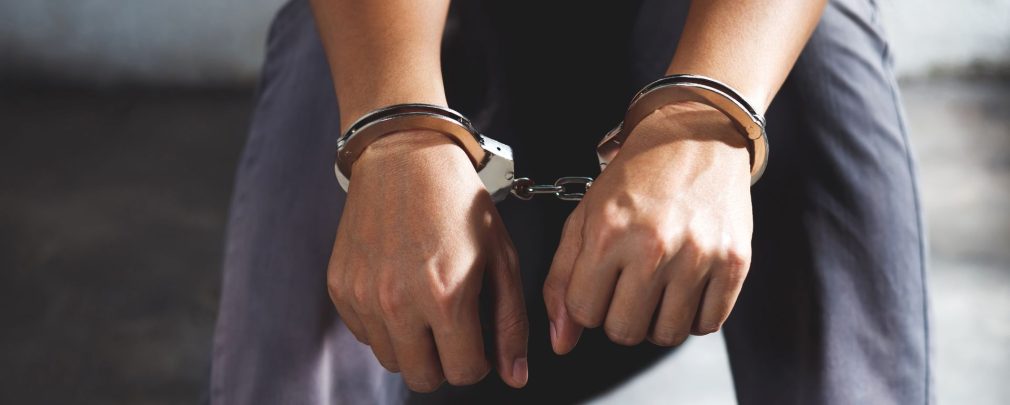Schedule A Consultation Today!
Misdemeanor vs. Felony in Florida – What’s the Difference? 2024

Criminal charges in Florida are classified into two types, misdemeanors and felonies. Both types of charges can carry significant consequences that may be life-altering. While both could result in significant fines and the potential for time in jail or prison, your criminal record will continue to follow you and may limit your employment, housing, and educational opportunities. Within both types of charges, there are different levels of severity that will help define the potential consequences you face.
Distinguishing between misdemeanor and felony offenses can help you navigate the criminal justice system, should you or a family member end up facing criminal charges.
Differences Between Misdemeanors and Felonies
It is commonly understood that felonies are considered more serious than misdemeanor charges. However, there is more to the differences between these two. These differences can be significant when determining how they are prosecuted and what the potential penalties are.
A criminal charge for misdemeanor offenses can be punishable by up to one year in jail and fines of up to $1,000 if convicted. Felony crimes are those that carry punishments of a year or more in a state or federal prison and fines amounting to more than $1,000.
Each type of misdemeanor and felony can be further subdivided. These subdivisions will more thoroughly define the exact penalties that each crime could face.
Misdemeanors in Florida
There are two types of misdemeanors in Florida:
- First-degree misdemeanors. These charges are the more serious class of misdemeanors. While not as severe as a felony, they are punishable by up to one year in jail and fines of up to $1,000. Types of charges that fall into this category include battery, animal cruelty, and possession of drug paraphernalia.
- Second-degree misdemeanors. These charges are less severe and carry punishments of up to 60 days in jail and fines of up to $500. These types of charges include driving on a suspended license, engaging in prostitution, and trespassing.
Other types of misdemeanors include crimes such as:
- Petty theft
- Some domestic violence charges
- Shoplifting
- Providing alcohol to a minor
- Driving with a suspended license
Felonies in Florida
There are five types of felony charges that could cause you to face severe penalties. Under state law, the types of felony charges include:
- Third-degree felonies. These are the lowest of the felony charges. However, they are still punishable by up to 5 years in prison and fines of up to $5,000. Types of crimes that could warrant such charges include aggravated stalking, possession of a controlled substance, and criminal trespassing.
- Second-degree felonies. These crimes are punishable by up to 15 years in prison and fines of up to $10,000. These felonies include vehicular homicide, committing a crime while in possession of a weapon, and manslaughter, that was the result of driving under the influence.
- First-degree felonies. These felonies are punishable by up to 30 years in prison, with fines totaling up to $10,000. Such felonies include burglary involving assault, aggravated battery against a law enforcement officer, and carjacking.
- Capital felonies. These felonies are those that could be punishable by death, as Florida uses the death penalty. These offenses could result in life in prison without the possibility of parole, should the death penalty not be warranted. The most common type of capital felony charge is first-degree murder.
- Life felonies. These felonies could result in a punishment of life imprisonment. Fines could be up to $15,000. These felonies include kidnapping, second-degree murder, and sexual assault against a child.
Other types of felonies include crimes such as:
- Child abuse
- Domestic violence with injury
- Drug trafficking
- Aggravated battery
- Sex crimes
FAQs About Misdemeanor vs. Felony in Florida
What Are the Degrees of Misdemeanors in Florida?
Charges for a misdemeanor in Florida are classified as either in the first or second degree. First-degree misdemeanors are the more serious of the two types. For a second-degree misdemeanor, you can receive penalties that include 60 days in jail and up to $500 in fines. For a first-degree misdemeanor, the jail time could be as much as a year and fines of up to $1,000.
What Is the Punishment for a First-Time Misdemeanor in Florida?
For first-time misdemeanor offenses, the punishment you could receive will be dependent on the type of misdemeanor committed. For a second-degree misdemeanor, you could face jail time for up to 60 days and $500 in fines, while a first-degree misdemeanor could mean jail time for up to one year and fines of up to $1,000. The circumstances of the crimes will determine the charges you face and the type of punishment that you may receive.
Can a First-Time Misdemeanor Be Dismissed in Florida?
Some first-time misdemeanor offenses could result in a dismissal or expungement. The criminal justice system seeks opportunities to practice restorative justice by providing first-time offenders with an opportunity to correct their behavior. Other ways first-time offenders could see their charges dropped are if they can negotiate a “Withholding of Adjudication.” This is an agreement between the prosecution and the judge.
Do You Have to Go to Court for a Misdemeanor in Florida?
Any criminal charge will find the accused in a county courthouse to face the charges before them. Whether in an arraignment or in the trial process, a court must review the circumstances of the case to make the appropriate adjudication. It is always recommended that, for any criminal charges, you hire the help of a criminal defense attorney who can assist with your case and prepare you for any trial procedures.
Florida Criminal Defense
Facing criminal charges of any kind can be confusing and full of frustration, particularly when you may not know how your charges could affect you. With the help of the Law Offices of Nellie L. King, you can understand how your misdemeanor or felony charges could impact you within the criminal justice system and in your personal life. Contact our offices today. Being charged with a crime does not mean that you are guilty of one.


